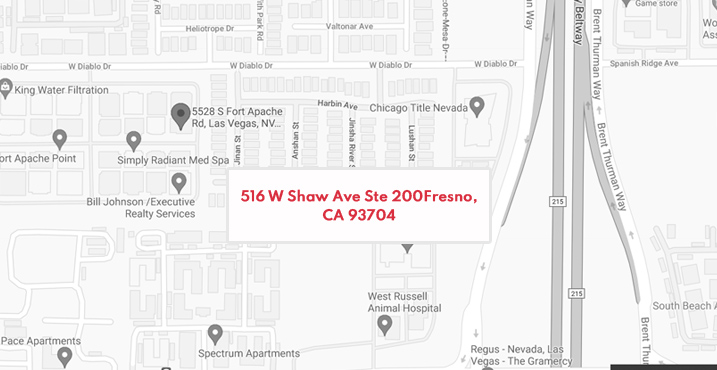You may believe that you must be “wealthy” to need a living trust, but that is certainly not the case. Living trusts are becoming a prevalent estate planning tool for many people (and families) whose main assets are their homes, vehicles, etc.
One of the main reasons for this is that if you form a living trust, it usually saves you (and your family) the cost and time involved in going through the California probate process.
It may also save you money on your estate taxes but still allows you to control your assets while you are alive and competent.
However, let’s say you don’t put your family home in your trust. Then the unfortunate answer is that the trustee appointed may need to open a California court-administered probate process if you become incapacitated or die.
The probate process is lengthy and costly and should be avoided.
So, the legal question you must answer is, what happens when a property is not appropriately titled to the trust during the trust “funding?”
Once your trust is formed, you must “fund” the trust. Funding is essentially transferring assets, such as deeds, vehicle titles, bank accounts, 401k’s, etc., into your newly formed trust.

You would think all assets would be put into the trust, but they are often not. For example, this may occur during the drafting of the trust when you (or the firm preparing the trust) either do not provide trust funding in their services or simply fail to follow through with the funding.
Most commonly, these errors are missed when you attempt to form a trust without the advice of a professional, competent Fresno estate planning lawyer.
Another example is if your property is refinanced. Here, the bank may require that your real property be removed from the trust. The real property is often not returned to the trust after escrow closes.
In both examples, failure to title assets in the trust will cause you and your family undue expense and severe delays if you die. Worse than that, your trust beneficiaries may receive their share of the trust differently than you intended.
What Is the “Heggstad Petition,” and Can It Help This Situation?
Not including certain assets, especially real property, often happens enough that California addresses the problem using the “Heggstad Petition.”
Your experienced and knowledgeable Fresno estate planning law team will explain this thoroughly and determine if it applies to your situation.
The “Heggstad Petition” commonly allows the trustee to file an administrative petition asking those specific assets outside the trust to be appropriately transferred to the trust.
However, the trustee or person filing the petition must show that this asset is mentioned in the trust and that you (as the trust’s creator) intended it to be in the trust. The California court will then begin its work and look for any language in the trust that mentions the asset.

This may sound like a good fix, but things may go differently than you planned. Situations regarding “unfunded trusts” can be complex and challenging for your trustee. This is a definitive area where the experience of your estate planning lawyer will help you with issues regarding your estate plan, including filing a Heggstad Petition, if needed.
If Property Is Not Titled to My Trust, Will a “Pour-Over Will Help?
In certain situations, a “pour-over will” solves some of the problems arising from assets left out of your trust. A “pour-over will” usually states that any assets not in your trust when you die should go into it. You usually would be named as the trust beneficiary of property, not in the trust, and this usually refers to assets such as a life insurance policy or on your retirement accounts.

There are legal limits when using a pour-over will; for example, if your property passes through a pour-over will, it still may have to go through probate before it can be transferred.
So, the “pour-over will” legal tool may still take months to distribute your assets in the trust to your beneficiaries.
What are Some Things a Living Trust Can Help Me To Accomplish?
Your “estate” may seem relatively small for a trust; however, when you and your Fresno estate planning lawyer get into the details, you will be amazed at how valuable a trust can be.
Just a few of the things that can be managed in a trust are:
- A trust will help you if you’re incapacitated – Your trustee will have the directives to handle your financial matters if you suffer an illness, accident, etc.
- A trust commonly gives privacy to you and your assets – If you die, your will usually become a “public record.” Most people today prefer that any details in your will remain private, and a trust will accomplish this.
- Mainly your trust will avoid “probate” – With just a will, your family still will go through probate, and the court covers all the expenses, creditor claims, and distribution of assets. A trust will avoid this intrusive, costly process.
- A living trust will address “special situations” – For example, trusts provide additional and detailed directives if you have a child with special needs. All special situations can be thoroughly thought out, and your exact wishes made clear.
I Want My Trust Done Properly to Avoid Issues; How Should I Proceed?
If you become incapacitated or die, it will be one of the most challenging times imaginable for your family and friends. Even with a moderate estate, myriad decisions must be made, and your family is already overwhelmed.
Consulting with an experienced, detailed, and thorough Fresno estate planning lawyer will ensure all the things you think of, and many that you won’t, will be addressed appropriately in your trust. Life can be a “messy” situation at times, but especially now, you need a well-thought-out plan to ensure your immediate family and loved ones, lives go the way you would want.
Don’t leave these decisions up to the courts; consult with your estate planning law team today, and your family will have a bright and secure tomorrow.









